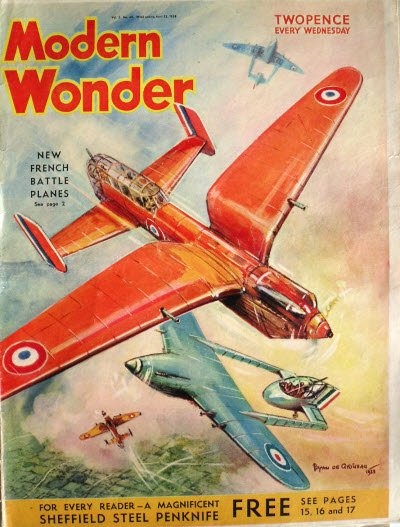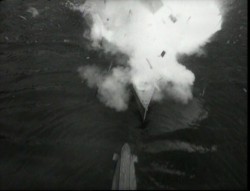I’ve been remiss in not noting the arrival of Military History Carnival #28 at Cliopatria. While it seems to be moving from a round-up of the best military history blogging to covering ‘military history on the Internet’ generally, there are still some good old-fashioned blogs therein. For example, Sellswords, mercenaries and condottieri presents a fascinating examination of the question: what was the reason for the inaccuracy of early modern firearms — ‘In other words, did soldiers use their firearms to its full potential?’
What I found particularly interesting were the details of experiments into musket accuracy conducted in the 18th century. For example:
Hanoverian experiments in 1790 showed that when fired at various ranges against a representative target (a placard 1.8 m high and up to 45 m long for infantry, 2.6 m high for cavalry) the following results were achieved: at 100 meters – 75% bullets hit infantry target, 83.3% cavalry, at 200 m – 37.5% and 50%, at 300 m – 33.3% and 37.5% respectively.
This statistical approach to thinking about combat seems close to what we would now call operational research, which has its origins in Britain in the Second World War (Bomber Command), the First World War (anti-aircraft gunnery), or maybe Charles Babbage’s day (postal delivery), depending on who you talk to. But from my (admittedly limited) understanding of the methods of operational research, it probably could have arisen any time after the development of probability theory in the 17th century. The interest of 18th-century militaries in getting answers to questions susceptible to statistical analysis suggests that the impetus was there, so why didn’t it happen sooner? For that matter (and it’s a question I keep coming back to), why didn’t the RAF develop them in conjunction with the bomber?
![]() This work is licensed under a Creative Commons Attribution-NonCommercial-NoDerivatives 4.0 International License.
Permissions beyond the scope of this license may be available at http://airminded.org/copyright/.
This work is licensed under a Creative Commons Attribution-NonCommercial-NoDerivatives 4.0 International License.
Permissions beyond the scope of this license may be available at http://airminded.org/copyright/.






Years ago, I read about the Battle of Quebec, including a good description of British infantry tactics. The role of musket fire was to fire in volley, sending a wall of lead across the field of fire — accuracy in elevation was important, but lateral aiming was distinctly secondary. This was standard British practice for a long time, and the effectiveness of it provides a partial rebuttal to the “stupid rigid-formation Brits vs adaptable, clever American irregular” narrative of the American revolutionary war.
I think the source is “Crucible of Fire”, but I am away from my library.
Brent Nosworthy, The Anatomy of Victory, has more information than most people should want to know about 18th century infantry firing systems. In terms of hits there was no difference between individuals firing at will, a whole battalion firing at once, or anything in between, but the psychological effect of a volley was often considered at least as valuable as hitting the enemy, and there was necessarily a trade off to be made between continuous fire and concentrated volleys. That led to lots of debate and lots of different systems. If I remember rightly the British settled on a fairly complicated platoon firing system: all three ranks of a platoon fired at once but each platoon fired in turn but in a weird order rather than just going along the line in sequence. Or if it wasn’t the British who did that it was someone (it’s a long time since I read it). I also suspect that the need to resist the psychological effects of volley fire could have contributed to the change from sword duels to pistol duels that Bob Shoemaker has found in 18th century England.
It’s an interesting question as to why operational research didn’t start earlier. I suppose one possible answer for the 17th century is that there was a lot more ‘irrationality’ about. Puritans tended to attribute everything, including their spectacular victories, to God’s providence. One effect of the renaissance was to encourage mindless obsession with ancient Greeks and Romans rather than more scientific rationality (think Fluellen in Henry V). But then there does seem to have been a big difference between different arms: artillery and engineers were very scientific, cavalry were very unscientific, and infantry somewhere between. Logically Newton’s laws of motion should have disproved the theory of shock charges but it actually became more widespread and more strongly held in the 18th and 19th centuries, so scientific progress didn’t necessarily help.
Surely the psychological advantage of the controlled volley was as much the steadying of the infantrymen’s nerves as the demoralising effect on the enemy? When loading and firing in unison the infantry would be more likely to keep its discipline.
In naval warfare at the time it was reckoned that only the best trained and most disciplined crews could be trusted to fire at will, sloppy crews had to be restricted to controlled broadsides.
The general failure of men to follow the leads suggested by empirical evidence is very striking in the Age of Enlightenment. Improvements like the adoption of lemon or lime juice to control scurvy took an amazing amount of time. But in that respect human nature has changed very little, there’s probably just a lot more people engaged in scientific and statistical research, which is why improvements are adopted more quickly.
In answer to your last question Brett:
I would say that it was because bombers were being built and developed for political reasons (to justify the RAF’s existence and to increase its budget). The first priority was the organisation and hierarchy, some sort of bomber theory justified the organisation and hierarchy, testing whether bomber theory was valid came a long way behind. In general, as far as I have gathered, any evidence that bomber theory was invalid was rejected as being in some way unrepresentative or misleading. Operational research might have shown up some ugly weaknesses in bomber theory, so better not do any. And in any case, it isn’t needed when you know that you’re right.
But some might call me a cynic.
I’ve returned to my library, the source for the Battle of Quebec is Fred Anderson’s “Crucible of War: The Seven Years’ War and the Fate of Empire in British North America 1754-1766”.
Just wanted to get that straight.
There’s pretty clearly a bloom in surviving work across a wide range of “scientific” inquiries into all manner of military activities over the course of the Eighteenth Century. The explanation for this is likely to be the same as the explanation for the Enlightenment. Whatever that might turn out to be. (Don’t keep me in suspense, historical profession!)
Amongst these many disagreements, the accuracy of a smoothbore musket in particular is a non-issue, in my opinion. You’ll find the argument for ‘unaimed’ volley fire in any late Nineteenth Century militia handbook, notably Wolselely. It is insensitive to technology, at least omitting rangefinders. But, be warned, it is pretty technically ballistic. So the reason that the Hanoverian war office is worried about it in the 1790s isn’t that it had the math at hand, but rather that rifle enthusiasts are getting on their case.
If you really want to plunge into heated, technical and well-made argument, you’d be better off looking at perpendicular fortification, divisions-of-all-arms, field bakeries or veterinary depots. The important stuff.
Taking into account all the above comments, there’s a good case being made for irrationality and unquestioned assumptions, both in the militaries generally and in Bomber Command specifically, holding up an earlier development of ‘real’ OR. It’s true that we (I) shouldn’t assume that it was in any way inevitable that it should be developed, or developed in the way it did. I think it’s a bit of presentism (eep!) on my part — like simulators, it just seems so obvious in retrospect that a little bit of lateral thinking along these lines would have gone a long way towards overcoming the (again, obvious in hindsight) shortcomings of bomber theory and practice.
Erik:
Thanks, but I was trying to avoid using the E word!
Gavin:
I seem to remember something about that in the Journal of Military History recently — I can dig up the reference if you like :)
Was there not a lot of OR-ish stuff going on in the development of indirect fire methods for the artillery? Given the crucial role of aerial spotting, it’s a little surprising that none of this expertise carried across to the bombing role.
Yes, that sounds right, sound ranging and that sort of thing too. Naval gunnery even before WWI might be another example. So there were multiple beginnings but it took another world war to coalesce into a coherent discipline.
I’ve wondered the same about the WWI AA OR-type stuff — though AV Hill worked on that and was on CSSAD too, so there were links, at least on the air defence side.
Though having just been at an excellent conference at which some of these issues came up, it looks like Will Thomas (Imperial CHOSTM postdoc and prolific blogger) might be the person to talk to. Unfortunately he was taken ill and was unable to give his paper, but from memory his abstract suggested that a lot of the OR proponents’ claims about the backwardness of the organisations they supposedly transformed were based on turf battles with those organisations’ own experts.
Right, sorry, I saw this earlier, and meant to comment on it before the conference, and the trouble I’ve been having with my inner ear (which is still hobbling me a bit).
My claim is that OR was perceived as a necessary wartime addition to an already substantial and sophisticated apparatus for technical and operational planning. (This was probably the main point of my talk) I don’t think OR people would have thought of the organizations they joined as backward, so much as they were part of a larger and unprecedented effort to respond to the challenges of an open, highly complex and technical war. Their main function was to help make the rationales behind existing plans, tactics, procedures, etc., more explicit, and then, where possible, to recommend improvements based on available data, and also to recommend possible ways of improving that data.
Concentrating specifically on statistics or other science-y methodologies can be a bit misleading, because it does not take into account major traditions in staff organization, specialty building, training and military schools, etc., which, in most conditions (especially outside of wars where large amounts of operational data are available, and prior to the proliferation of sophisticated equipment) provides the best and most necessary information for successful planning, insofar as successful planning is possible prior to the actual conduct of operations. OR staff knew this, and made sure to familiarize themselves with ordinary military heuristics, so that they could identify points where they had something particular to add.
After the war, of course, planning became a lot more thorough, and, despite the non-existence of operations to research, it was still deemed beneficial to retain staffs to scrutinize the thinking underlying military plans.
I wouldn’t, of course, say that pre-20th-century military planning was as impeccable as it might have been, but I would hesitate to draw a line wherein OR represents a clear switch from non-systematic to systematic planning.
Will:
Do you think your hesitation could be overcome? :) Or, to put it another way, I accept that there were times when ‘systematic planning’ (which is a good phrase, and really what I mean by the pre-OR examples in the post) was systematically applied — sought after by the bureaucrats, rewarded by career structures, encouraged by professional contacts, and so forth?